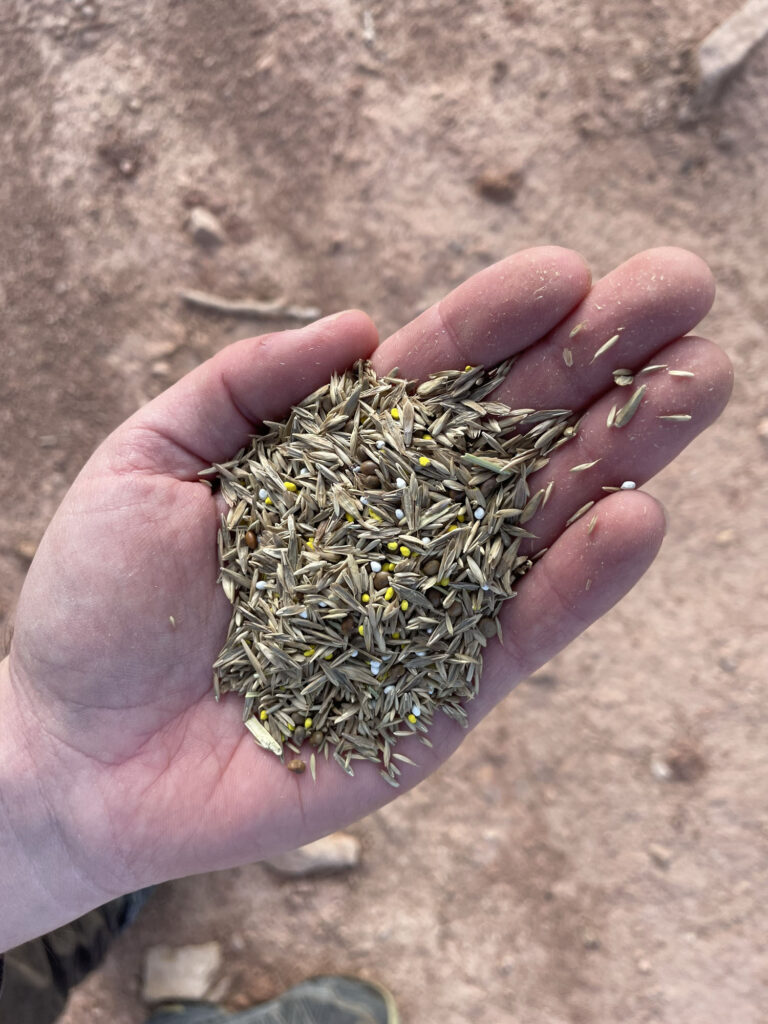The complexity and stability of agrarian systems is based on their diversity, made up of living elements and structures, as well as their actions and interactions. It is not only about the number of different elements, but also about their proportion, how they are ordered and how they relate to each other.
A fertile soil is an ecosystem that contains a wide variety of animal and plant species that fulfill numerous functions and where a series of processes and exchanges occur that make plants grow and develop in a healthy and balanced way. The main objective of PONS organic agriculture and specifically the sustainable management of agricultural soils is to create the appropriate conditions to reproduce these processes and exchanges that very significantly condition the evolution of crops and the quantity and quality of harvests.
Conventional agricultural systems are a simplification of natural ecosystems where the producer’s objective is to maintain a simple but productive system that, normally, gives rise to an intensification that ends up generating an imbalance and therefore degradation of the environment. This type of activity leads to the reduction of biodiversity and restructuring of soils, reducing not only their productive capacity, but also compromising their recovery power. It is because of this that today we find ourselves at a point of difficult return, where many of the olive groves in Spain suffer from the loss of soil due to erosion and impoverished soils with very little organic matter and whose slow Recovery compromises the activity of future generations.
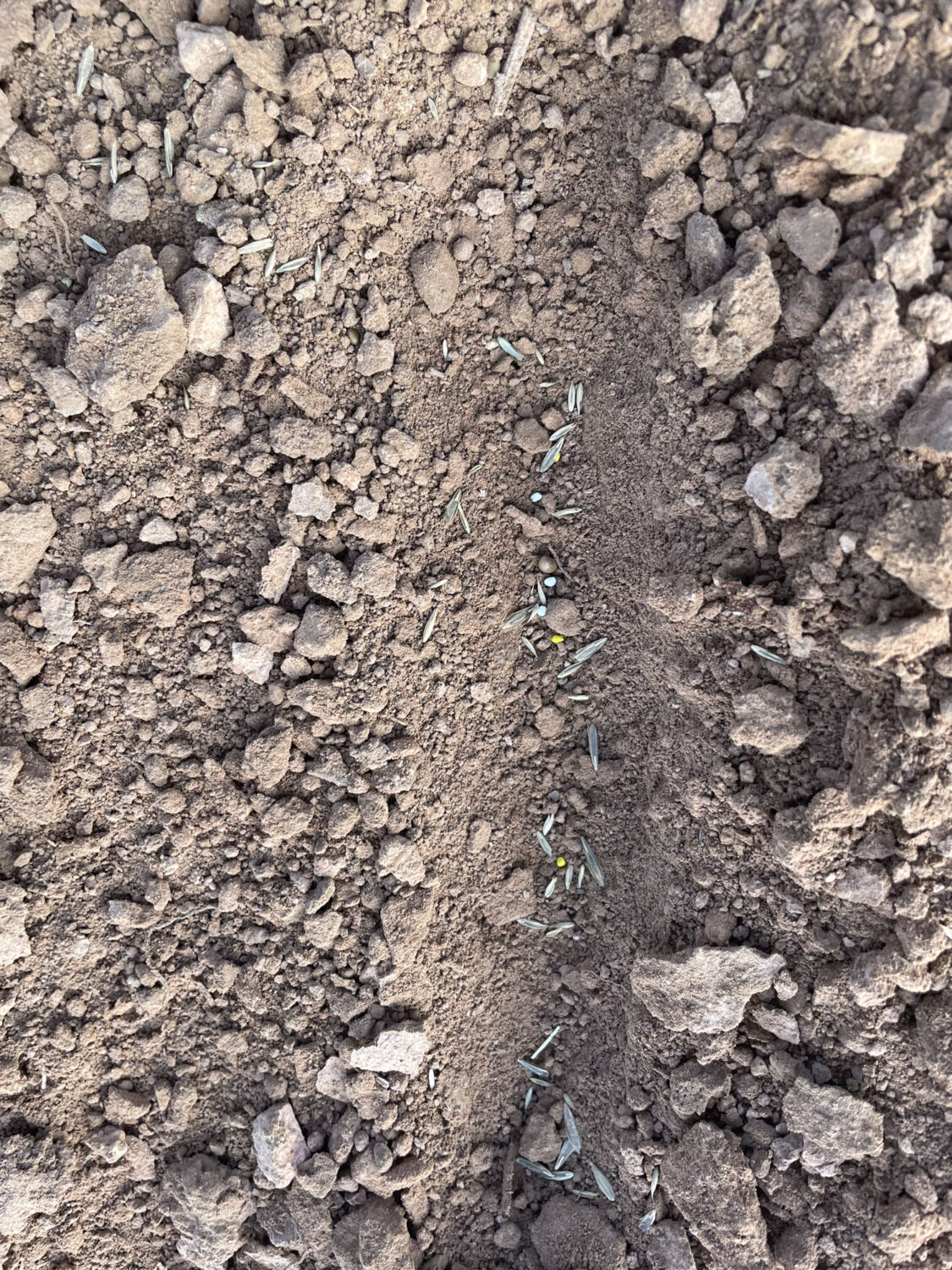

The nutritional needs of the olive tree are basically determined by the species and variety, the expected production level and the edaphoclimatic conditions of the area. Obtaining high production continued over time requires maintaining and increasing soil fertility. This ensures that the plants have the nutrients they need at all times at their disposal. In organic farming, fertilization does not aim to directly feed the plant, but rather mainly proposes maintaining or increasing the fertility of the soil that will indirectly feed the crops through the use of good agricultural practices.
At PONS, our challenge is to provide our olive grove with sufficient diversity and complexity to create a long-lived ecosystem with stable and sustainable production objectives over time. We can promote the regulation of the system through permanent space diversification strategies through the conservation and implementation of differentiated environments on the farm and its surroundings. We could call them “ecological infrastructures” that play a role as a reservoir of biodiversity, such as stone margins, forested areas, wetlands, etc. These reservoirs of diversity encourage insects, birds and other species to coexist in the productive environment throughout the year.
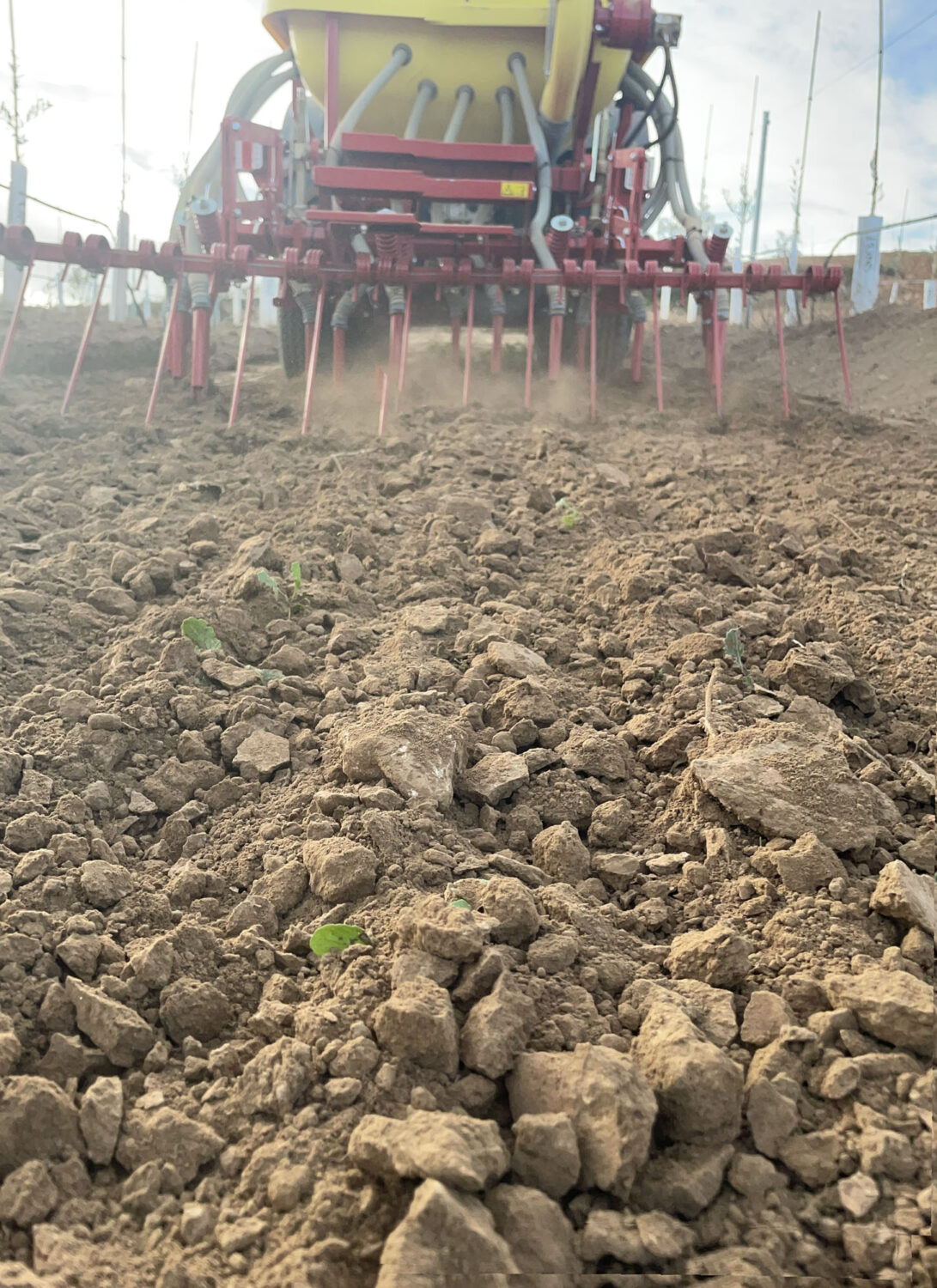

At PONS, all our olive groves maintain permanent plant covers that coexist with the olive trees without compromising their productivity. These covers come from spontaneous vegetation or from specific plantings where we mix different species that provide us with characteristics of different agronomic interest. When establishing a new cover, we choose seed species with a multi-year cycle or with a good capacity for spontaneous reseeding that ensures their longevity in the plantation. It is important to choose species and varieties with a good adaptation to the climate of the area where planting will be carried out and evaluate their behavior against pests and diseases that will affect our crop. The recovery of native varieties and varietal selection aimed at assessing their hardiness, agronomic aptitudes and nutritional qualities is a demand of the organic sector since, currently, the seed supply is very limited.
In the latest olive tree plantations in the super-intensive system at PONS we have sown a seed mixture composed of 60% grasses and 40% legumes with the aim of creating a cover of great agronomic interest and easy maintenance.
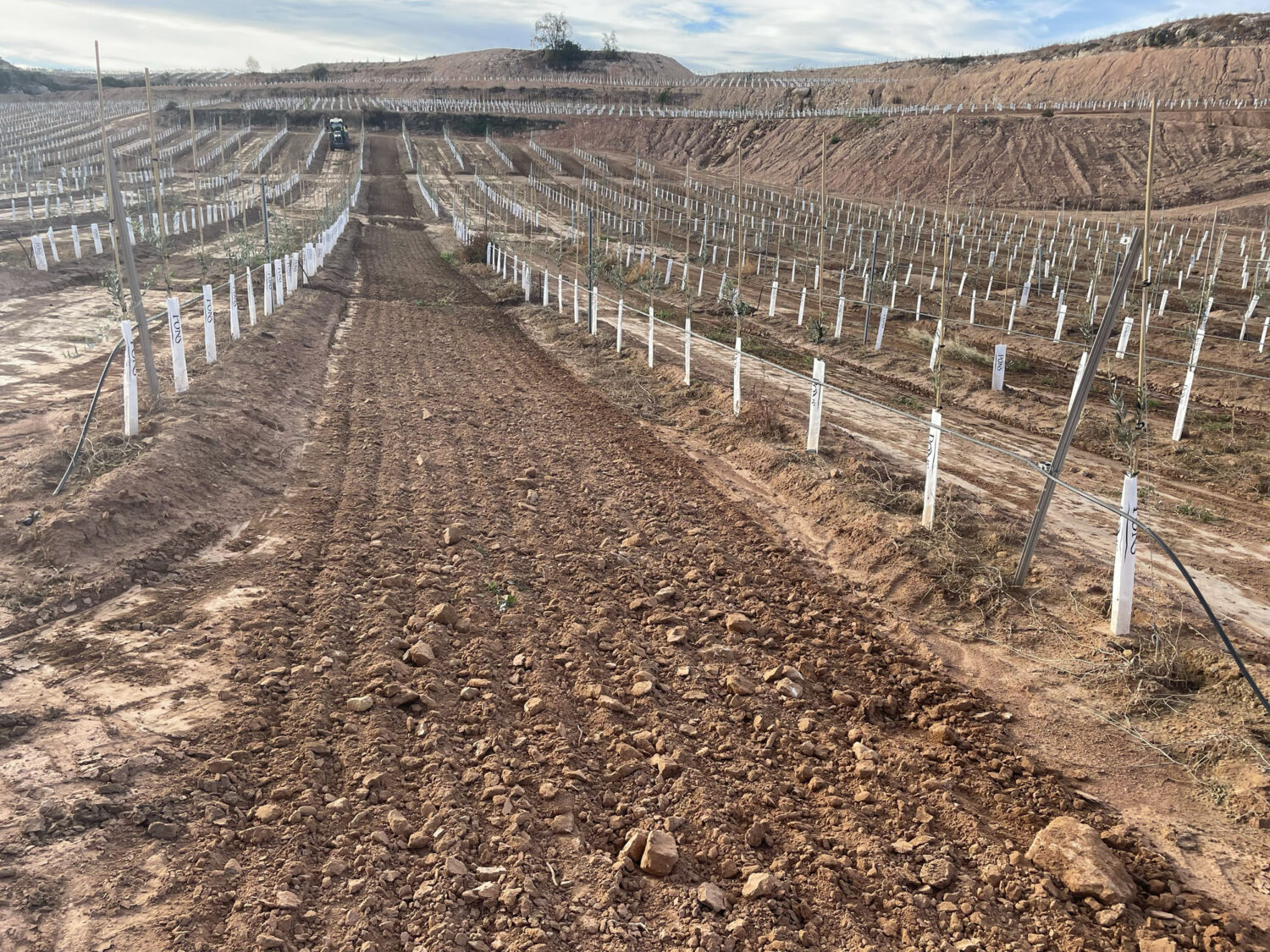

We selected three species of grasses; fescue arundinacea, dactylis glomerata and bromus inermis in the same proportions that will colonize the land quickly to reduce erosion damage in the first months of planting. Grasses are interesting due to their invasive nature and ease of multiplication. On the other hand, we chose two species of legumes as companions of the grasses; medicago sativa or alfalfa and onbrychis viciifolia or sainfoin that will be responsible for anchoring the soil in the long term thanks to a deep root system. In addition, they will improve water infiltration and soil fertility since they are atmospheric nitrogen-fixing species and, as they are flowering species, they will attract insects that will play in our favor. The more variety of living beings we have, the more difficult it will be for phytophagous and pathogenic organisms to establish themselves and impose themselves, allowing us in many cases to reduce phytosanitary treatments. Today, the authorities and controling bodies for organic production are not able to offer guaranteed methods to control certain pests and diseases and, for this reason, biological control is presented as a real need in our plant health strategy. .
We must not forget that a cover with a complex composition also promotes the biological activity of the soil, as we do at PONS, stimulated by high levels of organic matter, favoring the functioning of natural cycles and the assimilation of nutrients for crops and, making more accessible a wide window of mineral elements that plants alone could not extract.
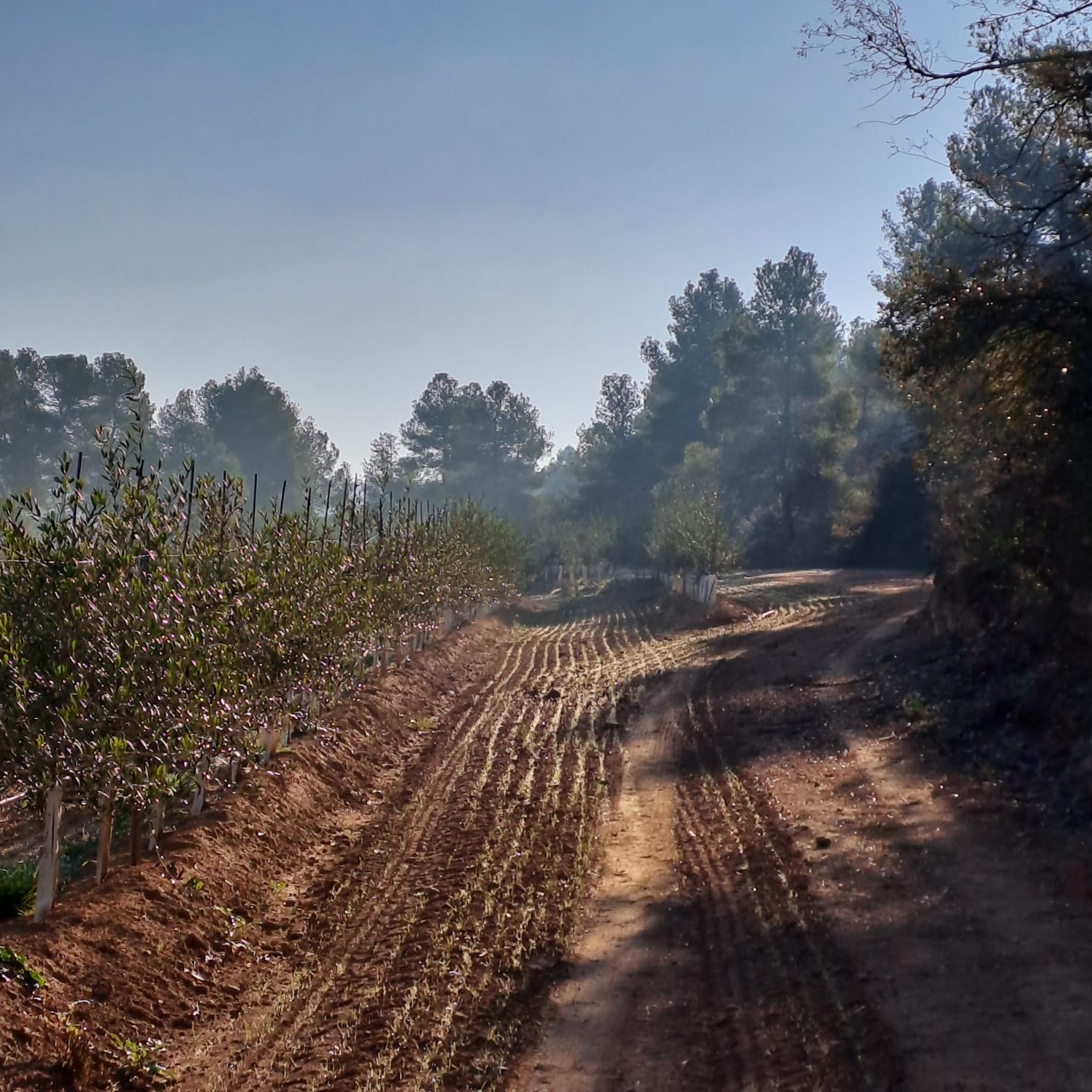

The care of the roofs in PONS is based mainly on two general aspects: preventing the vegetation from competing with the olive grove for soil resources through the use of mechanical processes and selecting the species of interest that we want to maintain in the cultivation streets with mowing. selective. The importance of the timing of each mowing is essential to favor the multiplication of some species over others to achieve covers of high agronomic interest and that require low maintenance. This cultivation system requires constant learning and great knowledge about the territory where we carry out our activity.
XABIER GAINZARAIN DOMAICA, Agricultural Director of PONS



